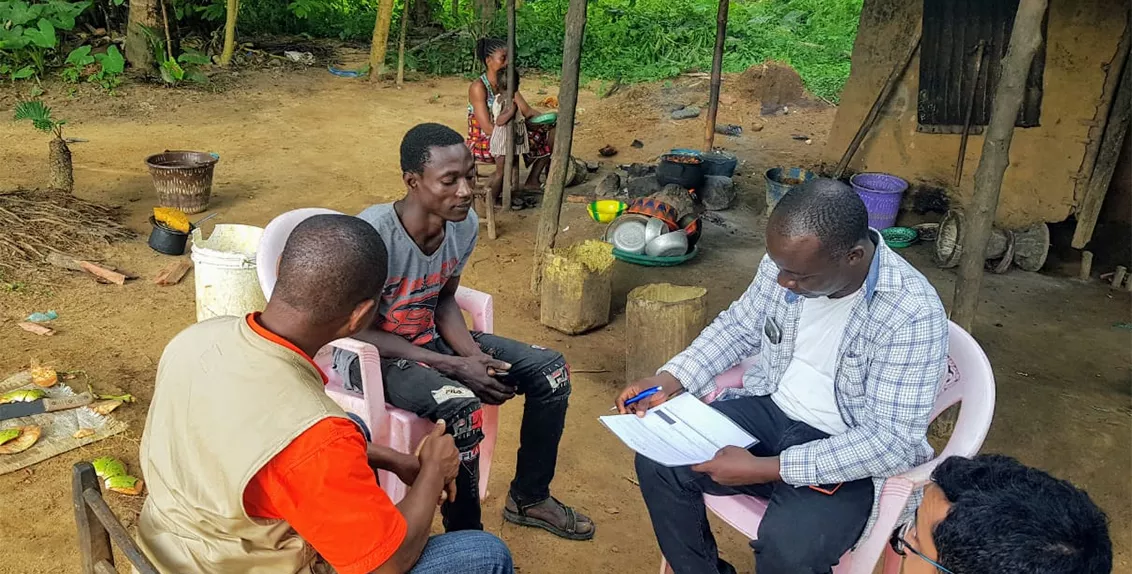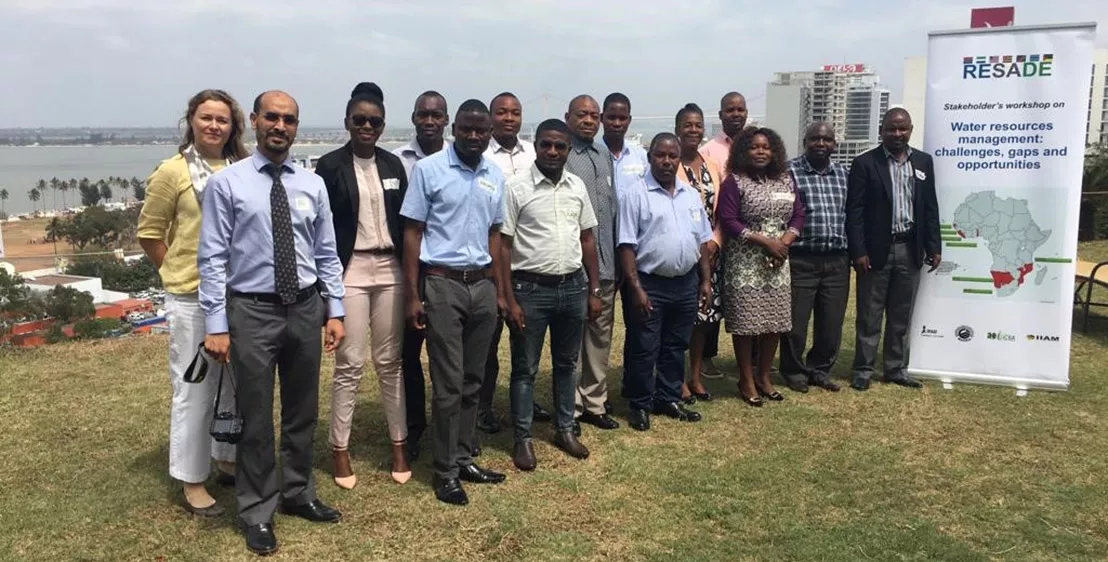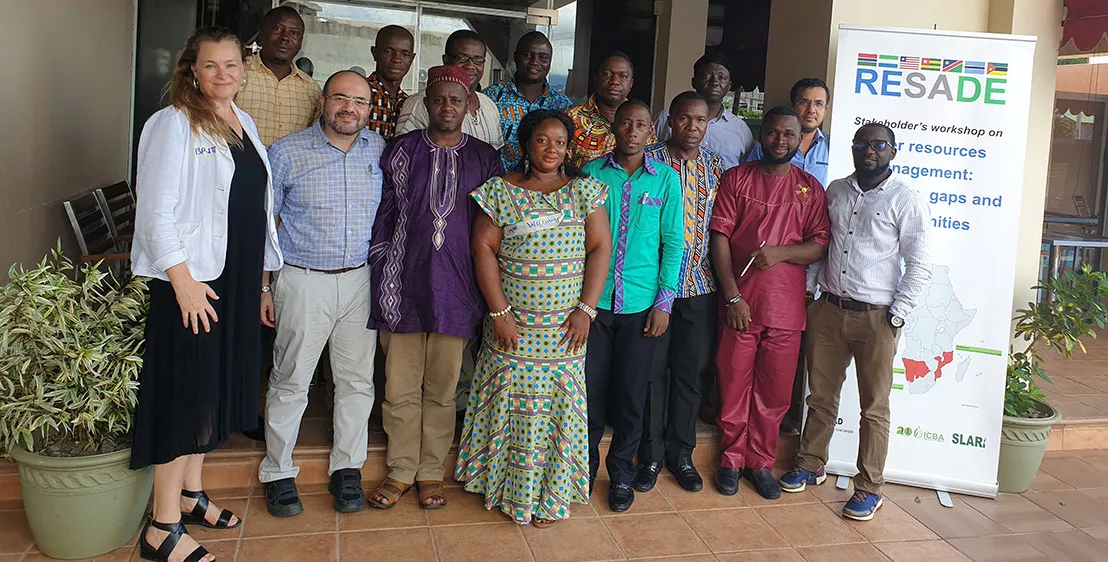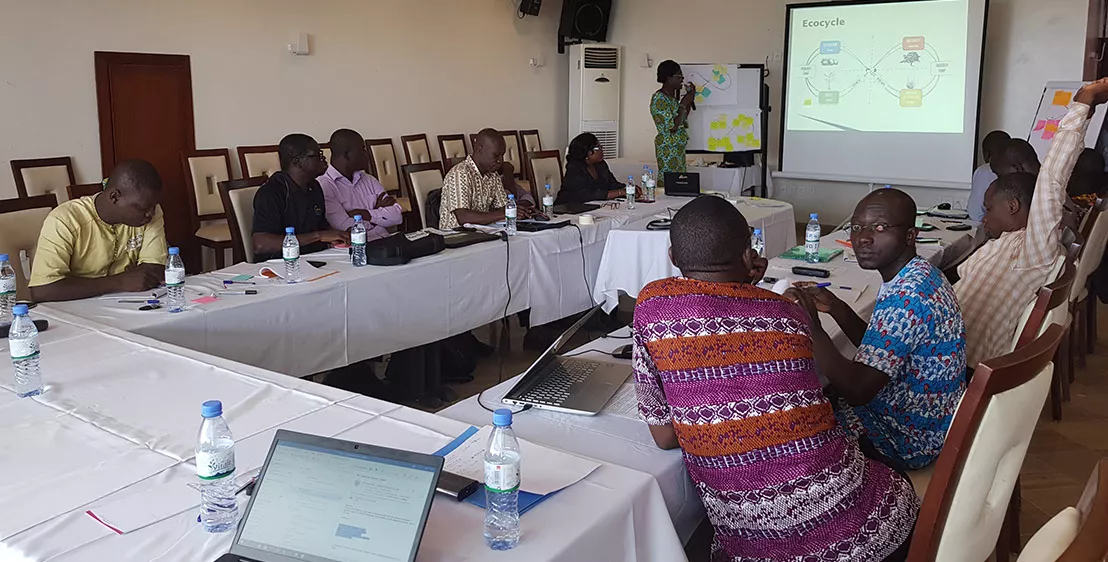Improving agricultural resilience to salinity and climate change through development and promotion of pro-poor technologies and management strategies (RESADE)
Problem Overview
The population of Africa is expected to double from the current 1.25 billion to 2.5 billion by 2050 and as a result, its demand for agricultural produce such as cereals will nearly triple, therefore requiring farmers to expand areas under cultivation, increase productivity per hectare and, crucially, reclaim any marginal lands. Despite the continent’s abundant arable land and water resources, it is estimated that over 19 million hectares of land is affected by salinity in Sub-Saharan Africa (SSA), predominantly in the countries of Eastern Africa, along the coast of Western Africa, the countries of the Lake Chad Basin, and in pockets of Southern Africa. Salinity is mostly caused by inappropriate irrigation practices that result in waterlogging, as well as by seawater intrusion into coastal farming areas due to the rising sea levels and over-pumping, resulting in declining productivity or loss of it in such areas. To improve the productivity of smallholder farmers in salinity-affected areas of Sierra Leone, The Gambia, Liberia, Togo, Botswana, Mozambique and Namibia, salt-tolerant crops and appropriate, sustainable land and water management practices and technologies will be introduced, and climate-smart and salinity-resilient agricultural models and approaches incorporated into national agricultural development policies and strategies.
Project Description
Mitigation and prevention of salinity is important for sustainable agricultural development in Sub-Saharan Africa, particularly as it transitions from traditional rain-fed agricultural systems to intensive irrigated agriculture. To address the growing challenges of food insecurity and poverty and to adapt to climate change, holistic solutions should focus on equipping smallholder farmers with technologies and skills that can improve agricultural productivity while conserving and improving the natural resource base.
Research Innovation Theme
Climate Change Impacts and Management
Project SDGs
SDG 1: No poverty
SDG 2: Zero hunger
SDG 5: Gender equality
SDG 13: Climate action
Funder(s)
International Fund for Agricultural Development (IFAD), Arab Bank for Economic Development in Africa (BADEA)
Duration
March 2019 - February 2023
Project Website
Project Lead
Dr. R. K. Singh (r.singh@biosaline.org.ae)
Project Region
Sub-Saharan Africa
Project Countries
Botswana
Liberia
Mozambique
Namibia
Sierra Leone
The Gambia
Togo
Partner(s)
Institut Togolais de Recherche Agricole, Sierra Leone; Agricultural Research Institute, The National Agricultural Research Institute – Gambia; Agricultural Research Institute of Mozambique; Central Agricultural Research Institute, Liberia; Directorate of Agricultural Research and Development, Namibia; Department of Agricultural Research, Botswana.














